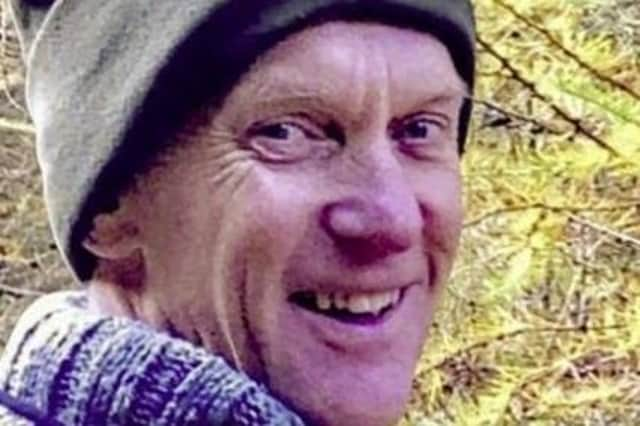Michael Watt: Tribunal retires to consider ruling in neurologist fitness to practise hearing


Earlier, the tribunal chairman said the case could proceed despite the legal representative of Belfast-based consultant Dr Michael Watt withdrawing from the hearing.
A lawyer for Belfast-based Dr Watt said the tribunal was “willing to embrace” an increased risk to his client’s mental health by going ahead and added that the hearing would only serve to “mollify the public clamour that is resounding in the case”.
Advertisement
Hide AdAdvertisement
Hide AdHowever, chairman Neil Dalton said the hearing would exercise its discretion to proceed without Dr Watt.
The Medical Practitioners Tribunal Service (MPTS) is carrying out the fitness to practise hearing. In 2018, more than 4,000 of the neurologist’s patients attended recall appointments amid concerns over his clinical practice. A previous MPTS tribunal granted Dr Watt voluntary removal from the medical register. However, the High Court in Belfast quashed that ruling due to concerns it was “not sufficient to protect the public”.
The three-person tribunal began its new hearing last month, when it was told a performance report into Dr Watt in 2018 found that he repeatedly failed to make correct diagnoses.
Resuming the tribunal on Friday, Mr Dalton said they had heard evidence and a number of submissions in private and the hearing would now proceed in public session.
Advertisement
Hide AdAdvertisement
Hide AdHowever, Dr Watt’s barrister Matthew McDonagh said there were concerns about his client’s “serious mental health condition”.
He added: “The tribunal has accepted, as indeed the previous fitness to practise tribunal accepted, that the continuation of this hearing in public presents a real risk to Dr Watt’s mental health.
“The tribunal is willing to embrace the increased risk to Dr Watt’s serious mental health condition by proceeding in this way.
“Those risks have been confirmed by both the General Medical Council and the defence expert witnesses who have given evidence before you.
“The defence team are not willing to embrace that risk.”
Advertisement
Hide AdAdvertisement
Hide AdMr McDonagh said his client’s condition had prevented the defence from challenging the performance report.
He added: “Dr Watt fears that the extensive opprobrium that the General Medical Council (GMC) and MPTS have encountered may be a factor that has impacted their present approach to this case.
“Dr Watt believes the present hearing only serves to mollify the public clamour that is resounding in this case.”
He added: “Further iterations of this case and the frenzied media cycle may satiate the public clamour but will serve no legitimate purpose and will increase the risk to Dr Watt.”
Advertisement
Hide AdAdvertisement
Hide AdMr McDonagh said his instructions were to withdraw an application for voluntary erasure of his client from the medical register and to withdraw from the proceedings.
Representing the GMC, Charles Garside KC said the tribunal would have to make a decision on whether to continue with the hearing while it was uncontested.
He said: “Fairness includes fairness to the public and fairness to the GMC.
“In this case the doctor has made a decision with full advice and knowledge of what the implications may be.
Advertisement
Hide AdAdvertisement
Hide Ad“Public interest requires that these proceedings are dealt with as expeditiously as possible, so both the public and Dr Watt know what the outcome of them will be.
“In my submissions the balance of fairness is in favour of the tribunal continuing with this hearing.”
After considering the submission, Mr Dalton said the tribunal would exercise its discretion to proceed.
The tribunal later heard evidence from Dr Paul Wilson and Dr Trevor Pickersgill, who were assessors in the 2018 performance report.
Advertisement
Hide AdAdvertisement
Hide AdDr Watt had been a consultant neurologist at the Royal Victoria Hospital in Belfast but ceased clinical practice in 2017.
He was interviewed three times for the GMC assessment report the following year.
The tribunal previously heard that the report stated Dr Watt’s performance was found to be deficient, he was not fit to practise and should cease practice.
The report said there was a persistent failure to take adequate histories from patients and carry out clinical examinations.
Advertisement
Hide AdAdvertisement
Hide AdIt also stated there was persistent and repeated failure to make correct diagnoses, resulting in patients receiving inappropriate management which included drugs with serious and toxic side effects.
It also said there was use of idiosyncratic diagnostic criteria, leading to patients receiving unnecessary invasive treatment.
Making closing submissions, Mr Garside said the tribunal had heard nothing in evidence to contradict the performance report.
Mr Dalton said the panel would retire and deliver its findings on Wednesday.